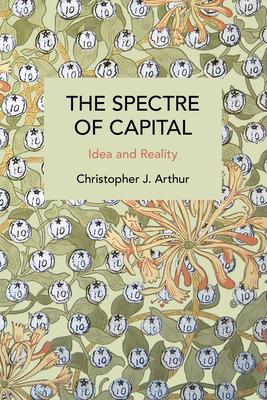What is money? What is capital? Christopher J. Arthur brilliantly tackles these fundamental questions at a deep philosophical level in The Spectre of Capital. He argues that the modern world is ruled by an unseen force, the spectre of capital. This insight is rooted in a strikingly original combination of the ideas of Marx and Hegel. Arthur here presents the most sophisticated argument to date for the 'homology thesis, ' spelling out how the order of Hegel's logical categories, and that of the social forms assessed by Marx in Capital, share the same architectonic. The systematic-dialectical presentation of this thesis shows how capital becomes a self-sustaining power.

What is money? What is capital? Christopher J. Arthur brilliantly tackles these fundamental questions at a deep philosophical level in The Spectre of Capital. He argues that the modern world is ruled by an unseen force, the spectre of capital. This insight is rooted in a strikingly original combination of the ideas of Marx and Hegel. Arthur here presents the most sophisticated argument to date for the 'homology thesis, ' spelling out how the order of Hegel's logical categories, and that of the social forms assessed by Marx in Capital, share the same architectonic. The systematic-dialectical presentation of this thesis shows how capital becomes a self-sustaining power.
Paperback
$36.94